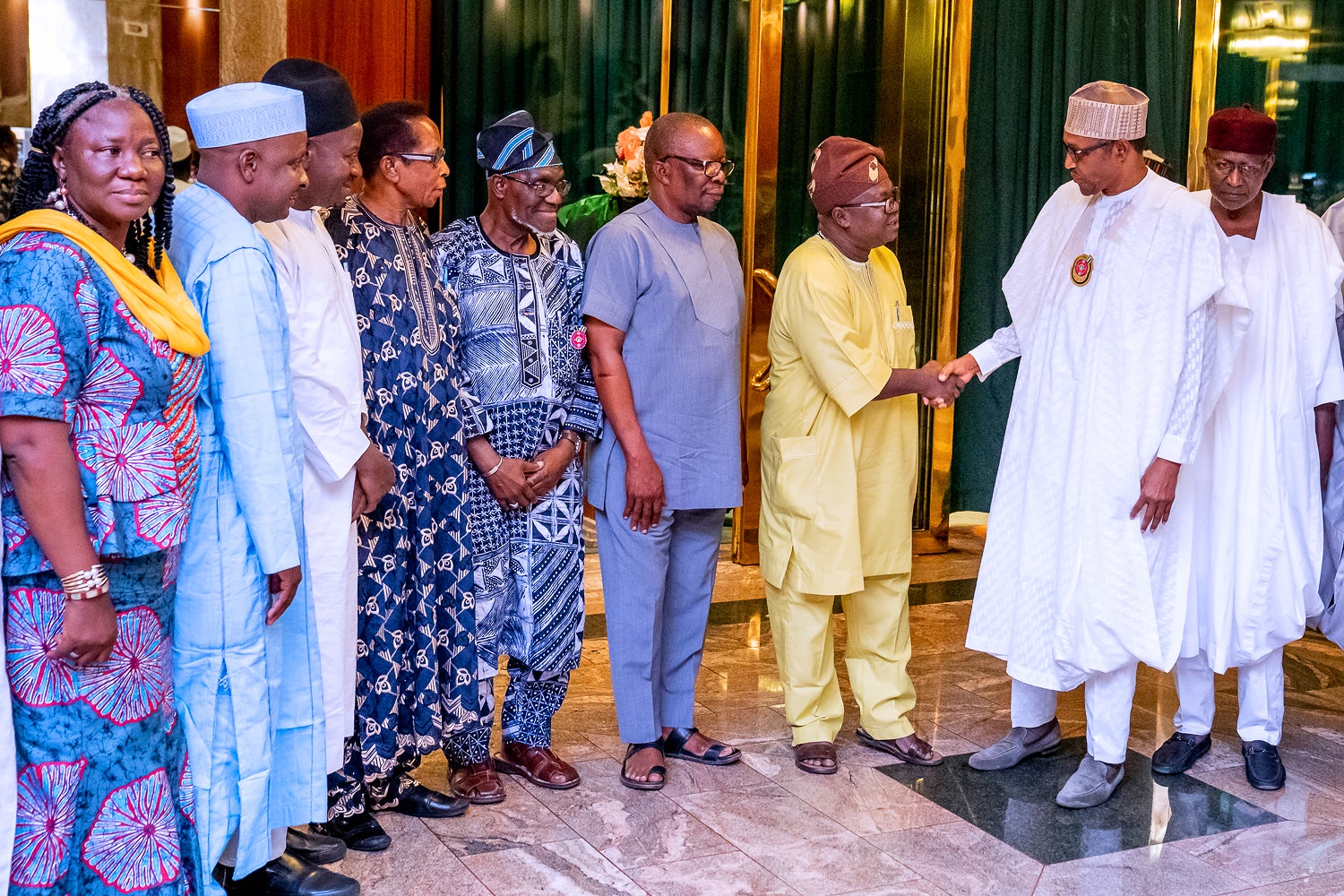The Academic Staff Union of Universities, (ASUU) says it did not meet with President Muhammadu Buhari last week just to discuss the stalemate between the Federal Government and the union over Integrated Payroll and Personnel Information System, (IPPIS). Rather, the meeting is in keeping with tradition of engaging presidents. ASUU had a meeting with the president January 9th, 2020 that some observers interpret as a possible outcome of a self-interrogation of leadership style of President Buhari.
ASUUs’ statement, however, indicates the meeting was at its own request on the broad context of education and national development. Three key issues were, according to ASUU president, Prof Biodun Ogunyemi, ASUU’s position on violation of university autonomy laws and agreements with the union; the 2019 FG-ASUU Memorandum of Action and implications of non-implementation and, lastly, ASUU’s proposals on sustainable funding of education.

Hajia Zainab Ahmed, Minister for IPPIS, sorry, Finance comes under fire from ASUU. She might benefit from a telephone conversation with Okonjo-Iweala on when it comes to ASUU
Prof Ogunyemi said in a 2- page statement that the media had, understandably, abstracted the IPPIS stuff in their treatment of the meeting but that there were more substantive issues such as the union’s proposal for a Five Year State of Emergency in the Education sector during which the governments would spend 6% of GDP or 26% of annual budget on that single item. There are about five other such proposals.
ASUU is declaring its satisfaction with the president’s comment to the effect that “the Minister for Education has a lot of work to do” but it is sending missiles in the direction of the Minister for Finance, Budget and National Planning whom it said were pushing unfounded allegations to portray the union in bad light before the president. The Secretary to the Government of the Federation and the Minister for Labour were, however, appreciated for pushing the possibility of marrying the ASUU’s University Transparency and Accountability Solutions, (UTAS) and Government’s IPPIS option.
ASUU stressed its commitment to the tradition of consultation and dialogue which it says is the basis of the meeting with the president, hoping that the president would give their requests prompt attention.
The meeting with the president is what many ASUU watchers would keenly keep in view. While the ‘State of Emergency’ suggestion has little or no opposition, the question of essentializing funding without specific proposals on the crisis of quality makes many uncomfortable with ASUU’s package. Many critics are wondering why ASUU is not talking about obsolete content, a crisis of methodology in the entire system, very ancient attitude to multi-disciplinarity, sometimes to the ridiculous extent of enforcing China Wall between International Relations and Political Science, for instance and so on and so forth. “These are issue areas that do not require enhanced funding to deal with but a sustained ASUU campaign”, said a critic who is also non-plussed on a number of similar features of the university system in contemporary Nigeria.
The biggest puzzle is how a campaign for enhanced reckoning with education can succeed in a country obsessed with foreign investment without a corresponding bulk of a domestic investing class that would then insist on quality graduates because, otherwise, their investments would be at risk. It doesn’t seem this cropped up at the meeting with the president who simply handed over the ASUU protest documents to the Education minister who cannot invent an investing class, no matter his clout in government.
It is a waiting game!




























